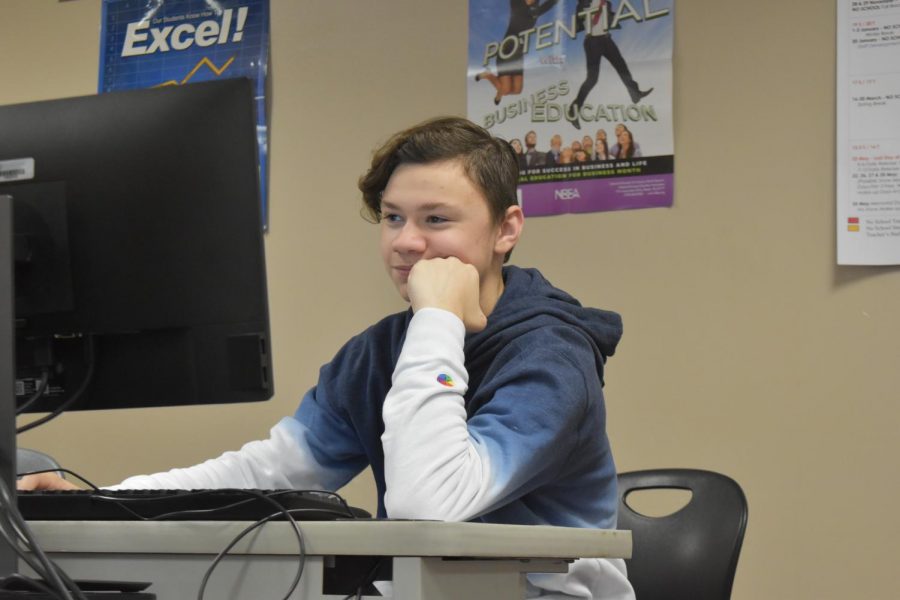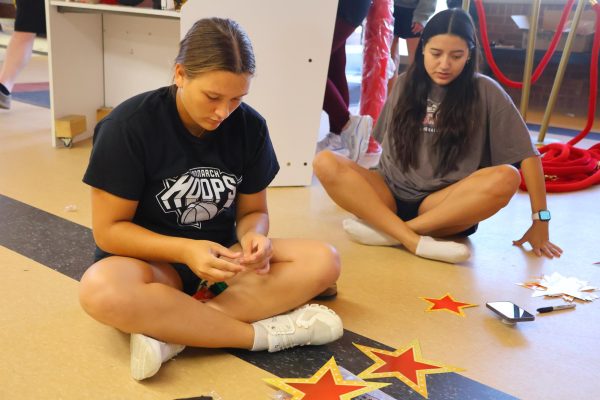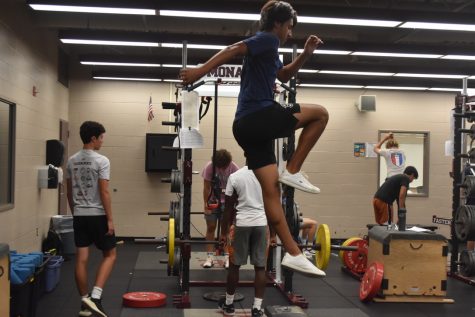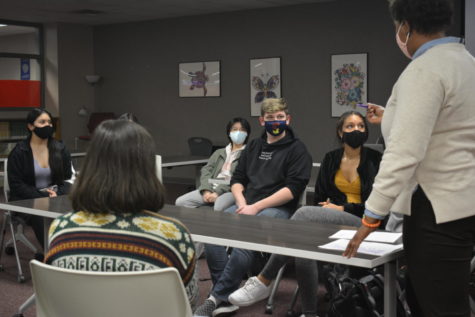Malicious Malware
Through hard work both staff and students at PLCS overcame an intense malware attack.
A typical school is reliant on many things to run like the well-oiled machine it is. It needs teachers, principals, janitors, electricity, books, pencils, students, the list is endless. Schools in 2019 however, are deeply rooted in technology in every way possible. Students take notes off a PowerPoint that is projected onto a smart board, they check their teachers blogs frequently and they write dozens of papers a year.
This past summer in the Papillion La Vista Community Schools, all its reliance of technology was in jeopardy.
The school district’s servers, which serve as a hub to anything related to computers, were hit by a ransomware virus. Luckily, the virus was caught before it was able to keep the district’s files hostage. However, because the servers had been breached, the district had to build a new system from scratch.
“Central office and the IT department went to work,” principal Jerry Kalina said.
The district’s IT department had a daunting job ahead of them. In only a few short months they had to redo the entire server from scratch. If they did not, then the school year would be heavily disrupted. Students would not be able to log on to computers, sign into their school related accounts and elementary students would not be able to do state testing or even simple things like printing. Even unexpected aspects of school operations were heavily affected.
“How are you going to control alarm systems, the badges that let us in, heating and cooling?” media academy head Becky Hoch said. “They are all network based.”
Hoch faced special circumstances with the malware attack, as her job relies completely on technology.
“It was particularly impactful because we lost our connectivity to the server where all our files were saved,” Hoch said.
Without access to the cloud for data saving, the department had to turn to the “not-so-old-old fashioned way.”
“Unfortunately, we had to save a lot on external hard drives, and one of them failed two weeks ago,” Hoch said. “We lost all the work we started for the athletic teams.”
Athletic events, specifically football games, have graphics and video clips of the players on the scoreboard. All of this is compiled and programmed by the media academy.
“The single largest impact was the video board at the stadium,” Hoch said. “We did not have access to it until the Tuesday before the Papio South game. Everything in years past has taken weeks to get up there, and we had it operating in two days.”
The effort put forth by the academy to get the board running was astonishing and a feat of talent and hard work.
“I’m really proud of kids for coming through and working their tails off,” Hoch said. “Austin Tejral is the video board producer and he put a lot of blood, sweat and tears on that.”
Tejral, the video board producer, led the charge in ensuring the video board would be up to the standard set in years past, and succeeded.
“I don’t think it truly hit how difficult it was going to be,” Tejral said. “It made the process a lot harder to generate content.”
This difficulty resulted in a process that required meticulous communication on the end of the broadcasting department. With the lack of servers, broadcasting members had to constantly check in with each other to make sure each person had to correct items on each hard drive. If they did not communicate then the final product would not be coherent.
“I think it was really hard as a process, but we were able to make it work,” Tejral said. “The entire thing took a lot of time.”
By no means were the broadcasting department the only ones putting in hard work as a result of this hack. The district’s IT department has been working an incredible number of hours. If they do not succeed at their job then many crucial parts of the school would no longer function.
“They did an excellent job, I know they have been working countless hours,” Kalina said. “For us to have such a big issue like that and then have the severs up and running before school starts is pretty amazing.”
The IT department took what was a horrific situation into a tedious, but manageable situation for everyone in the district. Even with the annoyances and troubles that have risen from this situation, a silver lining has emerged for many.
“We learned we have to be more safe and secure with what we do technologically,” Kalina said.
Even the broadcasting department without their crucial server access were able to adapt and find positives.
“Instead of starting the new students on a video project right away, we started to immediately work with cameras,” Hoch said. “Their ability and knowledge of the equipment is months ahead of where we have been in the past.”
This positive change was so striking to Hoch that she decided to change the order of the curriculum for new broadcasting students for the future.
“This has revealed to us a different set of benefits,” Hoch said. “The students even seemed to be engaged even more.”
What could have become an absolute hurricane of trouble for the district has turned in to a mere rain shower with a rainbow at the other side thanks to the hard work by students and staff alike. Without this the district would have been crippled without it access to its necessary technology.










